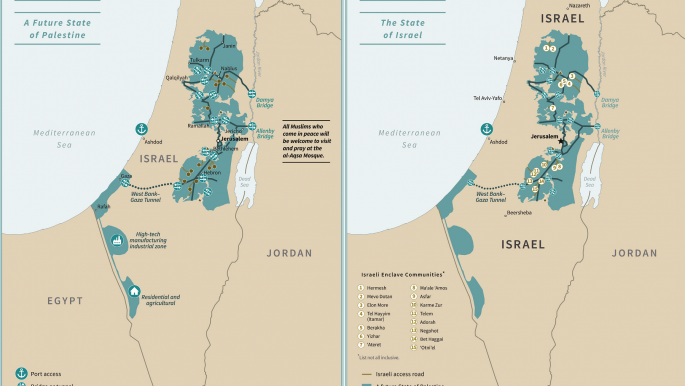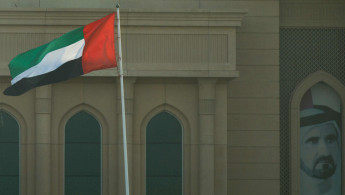UAE coordinated normalisation meeting between Netanyahu and Sudan's Burhan
The UAE coordinated a meeting between Sudanese leader and military chief Abdel-Fattah Burhan and Israel's Prime Minister Benjamin Netanyahu, an official revealed.
The meeting was orchestrated by the UAE with the aim of helping Khartoum to be removed from a US terror listlisting, which dates back to the 1990s when Sudan briefly hosted Osama bin Laden and other militants.
Burhan had agreed to meet Netanyahu on evening Monday because officials thought it would help "accelerate" the process of being removed from the terror list.
He said only a "small circle" of top officials in Sudan, as well as Saudi Arabia and Egypt, knew about the meeting. Burhan is thought to be a staunch ally of the UAE.
The Sudanese foreign ministry released a statement shortly after saying it had no idea of the meeting between Burhan and Netanyahu.
Khartoum's security and defence council announced on Tuesday afternoon that it will host an emergency meeting in reaction to Burhan's unprecedented actions.
The unprecedented move by Sudan was met with anger inside Sudan and amongst Palestine’s allies, but was welcomed by Israel and the United States.
US Secretary of State Mike Pompeo welcomed the Burhan-Netanyahu meeting and "thanked the Sudanese leader for his leadership in normalising ties with Israel", according to the State Department.
Despite not having diplomatic ties with Israel, the UAE has for years had covert relations with the country.
These relations became more open over the past two years with an ongoing project of normalisation between Israel and Gulf states.
Late last month, the UAE sent its ambassador to US President Donald Trump's announcement of the Deal of the Century, which sees the annexation of illegal Israeli settlements in the West Bank, saying it "appreciates" US efforts for peace.
"This plan is a serious initiative that addresses many issues raised over the years," the Emirati Ambassador in Washington Yousef Al-Otaiba said at the time.
A break in pro-Palestine stance
Sudan hosted the Arab League summit after the 1967 war that became famous for establishing the "three no's": No to peace with Israel, no to recognition of Israel and no to negotiations with Israel.
That consensus broke down in 1979 when Egypt signed a peace treaty with Israel. It has further eroded in recent years after Israel improved ties with Gulf Arab nations over mutual concerns regarding Iran. Only two Arab states, Egypt and Jordan, have made peace with Israel.






 Follow the Middle East's top stories in English at The New Arab on Google News
Follow the Middle East's top stories in English at The New Arab on Google News


